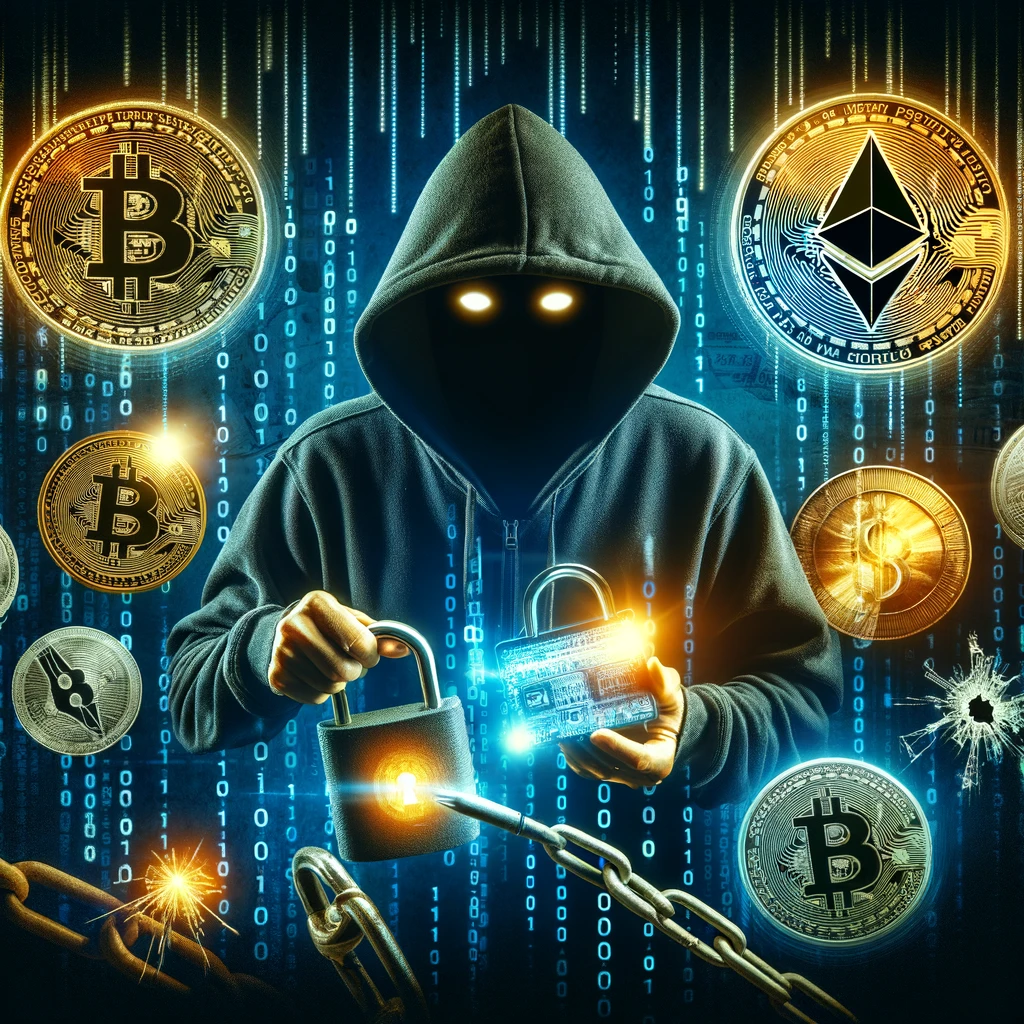Cryptocurrency has revolutionized the financial world, offering new opportunities for investment and innovation. However, the unregulated and anonymous nature of digital currencies has also attracted hackers and scammers. Here, we delve into some of the most notorious crypto heists and scams, revealing the dark side of the crypto world.
1. Mt. Gox Hack (2014)
The Mt. Gox hack is one of the most infamous events in cryptocurrency history. Once the world’s largest Bitcoin exchange, Mt. Gox handled approximately 70% of all Bitcoin transactions. However, in February 2014, it filed for bankruptcy after 850,000 Bitcoins (worth around $450 million at the time) were stolen due to security vulnerabilities.
What Happened?
Hackers exploited weaknesses in Mt. Gox’s system over several years, slowly siphoning off Bitcoins. The company initially claimed it had lost the Bitcoins due to a bug in the Bitcoin software, but later investigations revealed poor management and security practices as the main culprits (The NFT Brief) (Decrypt).
2. Bitfinex Hack (2016)
In August 2016, Bitfinex, a major cryptocurrency exchange, was hacked, resulting in the theft of nearly 120,000 Bitcoins, valued at approximately $72 million at the time. This hack sent shockwaves through the crypto community due to the sheer volume of Bitcoin stolen.
What Happened?
The attackers exploited a vulnerability in the exchange’s multisig wallet architecture provided by BitGo, a third-party security service. This allowed the hackers to transfer the funds to their wallets. Bitfinex managed to stay afloat by issuing BFX tokens to affected users, promising to repay them over time, which they eventually did (Gemini).
3. The DAO Hack (2016)
The DAO (Decentralized Autonomous Organization) was an innovative venture capital fund built on the Ethereum blockchain. In June 2016, it raised over $150 million in a crowdfunding campaign, only to be hacked for $50 million shortly thereafter.
What Happened?
The hackers exploited a flaw in the DAO’s smart contract, allowing them to siphon off a third of the fund’s Ether. The incident led to a controversial decision to hard fork the Ethereum blockchain, effectively reversing the theft and creating Ethereum Classic (ETC) as a split from the original Ethereum (ETH) blockchain (Decrypt) (Bitpanda – Start investing today).
4. Coincheck Hack (2018)
In January 2018, Coincheck, one of Japan’s largest cryptocurrency exchanges, suffered a massive hack resulting in the theft of $530 million worth of NEM coins. This remains one of the largest heists in cryptocurrency history.
What Happened?
The hackers gained access to Coincheck’s hot wallet, which was inadequately secured compared to a cold wallet. The stolen NEM coins were traced to various exchanges, but most of the funds were never recovered. This hack prompted Japanese regulators to impose stricter security measures on cryptocurrency exchanges (Gemini) (Decrypt).
5. PlusToken Scam (2019)
The PlusToken scam was one of the largest Ponzi schemes in the crypto world, defrauding investors out of approximately $2 billion. Marketed as a high-yield investment program, PlusToken promised substantial returns, attracting millions of investors, primarily in China and South Korea.
What Happened?
PlusToken operated like a typical Ponzi scheme, using funds from new investors to pay returns to earlier investors. The scheme collapsed in mid-2019 when the operators disappeared with the funds. Chinese authorities later arrested several key figures involved in the scam, but the stolen funds caused significant market turbulence when they were moved and sold (Decrypt) (Bitpanda – Start investing today).
6. KuCoin Hack (2020)
In September 2020, KuCoin, a popular cryptocurrency exchange, was hacked, resulting in the theft of over $280 million worth of various cryptocurrencies. This hack was notable not only for the amount stolen but also for the swift recovery efforts.
What Happened?
The hackers managed to obtain the private keys to KuCoin’s hot wallets, allowing them to transfer a large sum of assets. However, through cooperation with other exchanges and blockchain projects, KuCoin was able to recover or freeze a significant portion of the stolen funds, minimizing the overall loss (Gemini).

Conclusion
These heists and scams highlight the importance of robust security measures and regulatory oversight in the cryptocurrency space. As the crypto market continues to grow, both investors and platforms must remain vigilant to protect against potential threats. While the decentralized nature of cryptocurrencies offers many benefits, it also necessitates a greater emphasis on security and due diligence.
Cryptonomics369.com aims to provide the latest news, insights, and educational resources to help you navigate the ever-evolving world of cryptocurrency safely and effectively. Stay informed, stay secure, and keep exploring the potential of digital currencies.

